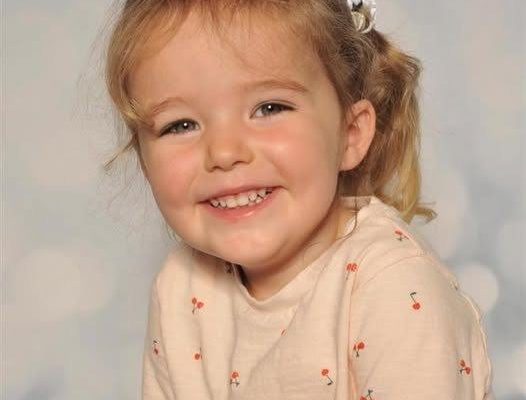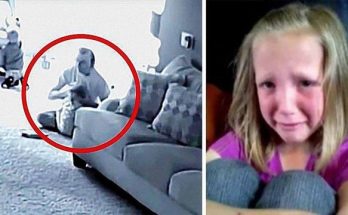Yet, for Andrew Hillcoat and Caroline Bee, this heartbreaking reality became their world after a series of missed medical opportunities led to the tragic loss of their bright, loving three-year-old daughter, Ryleigh.
Her story is a call to action, a reminder that no stone should ever be left unturned when it comes to a child’s health.
Glaring red flags
Ryleigh Hillcoat-Bee was just three years old, full of joy, and loved Peppa Pig, carrot sticks, and peas. Tragically, she passed away from a rare condition known to affect young children. Her story serves as a painful reminder of how crucial it is for medical professionals to listen to parents, trust the signs, and act quickly.
It all began in August 2021 when Caroline and Andrew took their little girl on a holiday to North Wales after COVID restrictions had finally lifted.
But should have been a joyful trip took a worrying turn when Ryleigh became floppy and lethargic. Concerned, her parents rushed her to the hospital, where doctors discovered elevated potassium levels and extraordinarily high levels of Creatine Kinase in her blood. These were glaring red flags — but instead of digging deeper, the hospital sent her home.
Doctors assured the family that her illness was likely a one-time event and scheduled a follow-up appointment six to eight weeks later.
”Doctors reassured us her illness was likely to be a one-off,” Ryleigh’s parents told Manchester Evening News.
But that doctors’ appointment never happened. The hospital failed to reach out again, and the family was left assuming their daughter was in the clear.
Woke up crying
Three months later, on November 8, 2021, everything changed. The day before, Ryleigh had been her usual playful self, enjoying time at a soft play center and ending the evening with a comforting dinner of fish fingers, chips, and vegetables. She went to bed as usual, but hours later, she woke briefly, seeming unwell.
By the morning of November 8, her parents’ unease turned to panic when they heard her crying. Caroline and Andrew knew something was seriously wrong.
Their daughter’s breathing had become raspy, and her cries sounded weak.

Alarmed, they rushed her to Blackpool Victoria Hospital. By the time they arrived, her condition worsened dramatically. Just hours later, little Ryleigh had a cardiac arrest and passed away.
The little girl passed away just three months after being discharged from the same hospital where she had been born a little over three years earlier. The devastation was compounded when, just days after her death, the hospital called to finally schedule that follow-up appointment they had promised months earlier. For her grieving parents, it felt like salt in an already unbearable wound.
Cause of death
After Ryleigh’s tragic death, doctors were left baffled, unable to determine what had caused the cardiac arrhythmia — or irregular heartbeat — that led to the toddler’s passing.
Months later, medical experts confirmed what had caused Ryleigh’s death. She had a rare metabolic disorder called Lipin 1 deficiency.
This condition, which affects about one in every 200,000 people, can lead to a severe condition called rhabdomyolysis. According to Cleveland Clinic, Rhabdomyolysis causes muscle tissue to break down, releasing toxins into the bloodstream that can severely damage the heart and kidneys.
In hindsight, the signs were there. Her elevated blood levels and lack of mobility during her hospital visit in August should have prompted immediate follow-up testing and treatment. Ryleigh’s creatine kinase (CK) level was 300,000, more than 2,000 times the normal range of 100 to 140.
Her dark-colored urine — described as looking like Coca-Cola — was another major clue that went ignored. Instead, doctors dismissed her symptoms, saying her urine sample might have been contaminated with diarrhea.
Missed opportunities
According to the inquest into Ryleigh Hillcoat-Bee’s death, hospital staff did reach out to colleagues in Leeds during Ryleigh’s August 2021 admission. They were given clear advice that a neuromuscular cause should be considered.
Blackpool Coroner’s Court later acknowledged these missed opportunities. As Coroner Alan Wilson explained, “Had they done so, identifying rhabdomyolysis and advice on how to treat a flare-up would have followed.”
Ryleigh’s story is a tragic reminder of how medical mistakes can cost lives – and Caroline and Andrew believe her death was entirely preventable.
“We believe that Ryleigh should still be here today,” they said. “She was not given any chance of survival.”
What could be learn from the tragedy?
Today, Caroline and Andrew’s fight is far from over. They’ve filed a medical negligence claim against the hospital, hoping their case will lead to change.
”We are very upset at the loss of our little girl. We had to fight for a full inquest into her death and it has been a long and traumatising journey,” the parents said.
Blackpool Victoria Hospital has acknowledged its failings and promised to learn from this tragedy. But for Ryleigh’s parents, the damage is already done.
Coroner Alan Wilson of Blackpool and Fylde expressed concerns that other children may die from the same rare condition that affected Ryleigh Hillcoat-Bee unless more doctors are made aware of it.
“There is a clear lack of awareness of the condition amongst paediatricians in general paediatric departments. In my view, there is a strong likelihood that previous cases of rhabdomyolysis in young children have been missed. What guidance is available appears to be very limited. In the event other young children attend a general paediatric department in the future for reasons connected to rhabdomyolysis, there is a concern the condition will go unrecognised and with fatal consequences.”
Despite their grief, Caroline and Andrew are determined to ensure Ryleigh’s story isn’t forgotten. With the help of The Compassionate Friends, a charity supporting families who’ve lost children, they’ve started sharing her story to raise awareness about Lipin 1 deficiency and rhabdomyolysis. Caroline’s sister-in-law even ran a half marathon, raising over $3,800 to support other grieving families.

Ryleigh’s life may have been short, but I hope that her story has the power to create change and save lives. Share her story, keep her memory alive, and remind others to always advocate for the health of their loved ones.
Ryleigh may no longer be here, but she will always be remembered as a bright light taken far too soon. 💔






